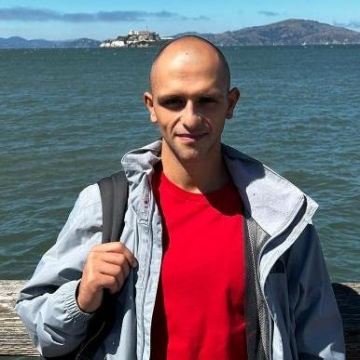Having grown up in Italy and attended a university close to his hometown outside Rome, Federico Marciano was aware of the challenges he’d face applying to graduate programs in economics in the United States.
Despite excellent grades and what seemed like a competitive profile, he applied to fifteen schools and was rejected by each one.
“Not even an interview,” he notes.
But getting a PhD in economics was his goal and doing so at a university in the United States was a key part of that goal. “In the field of economics, it’s important to realize that the programs in the United States are significantly better than their competitors in Europe,” he says. “It almost doesn’t make sense to compare them.”
Marciano had one path still open to him. Known as a pre-doc, budding economists can work as research assistants for economics professors at US universities for two years to boost their chances of acceptance to PhD programs.
When Marciano found a pre-doc opening at the University of Chicago, he reached out immediately. And just like that, after successfully completing a data analysis test, he was on his way to Chicago.
Learning From a Nobel Prize Winner
If landing a pre-doc was a first important step to his goal, it did not take long for Marciano to discover another opportunity that put him still closer: the University of Chicago’s Graduate Student at Large (GSAL) program.
The GSAL program provides students with an essential bridge from undergraduate studies to graduate programs by letting them take for-credit undergraduate and graduate courses at the University of Chicago.
“GSAL is a phenomenal opportunity,” Marciano says. “Not only is the University of Chicago very prestigious, it’s known to be extremely rigorous as well, so getting an A in a class here sends a powerful signal when you apply to graduate schools that you are very qualified.”
The GSAL program was also a perfect fit because it gave Marciano the freedom to take the classes of his choice. “In economics this is especially important,” he says, “because there are a vast number of areas and classes to take in economics but when it comes to PhD applications there are only two subjects that really matter: statistics and real analysis.”
Not only was Marciano able to take both these important classes, but when he reached out to the statistics professor about taking his class as a GSAL student he was on the receiving end of a considerable surprise.
“Before the start of the lectures, I sent an email to the instructor to ask for his permission to take his class as a non-degree student,” he says. “I was impressed by how quickly and kindly he replied. Then, I googled his name—Lars Peter Hansen—and read his bio and that’s when I learned that he’d won the Nobel Prize in Economics! That just seemed like an incredible thing to me and made me really excited.”
Mission Accomplished
With two essential GSAL classes under his belt and his time as a pre-doc coming to an end, it was time for Marciano to prepare a second round of applications. He had little doubt that his applications would be stronger this time around.
“I still remember the beginning of the resume I sent to graduate schools for my second application cycle,” he says. “I mentioned the University of Chicago on top of everything and emphasized the two As I got in the classes I took through GSAL. Thanks to this new resume, I got into eleven top-ranked PhD programs in economics.”
True to his vocation as an economist, Marciano describes these excellent results as a clear sign of a “treatment effect,” a concept from economics and other fields that refers to the impact that a particular intervention or treatment has on an outcome of interest.
“There’s a pre-treatment outcome, which was my first application cycle, and a post-treatment outcome, my second application cycle,” he says. “And since the individual in both cases was me, you are controlling for any unobservable bias.”
The conclusion? Marciano’s time at the University of Chicago, both as a pre-doc and a GSAL student, was the indispensable treatment that led to his broad acceptance to the best graduate programs in economics in the United States. He chose Stanford University in the end, where he started as a PhD student in economics in the fall of 2023.

Build a Bridge to Your Future
Explore fields of academic study and preview graduate and undergraduate level courses by taking for-credit classes at UChicago.
Find Your Fit




